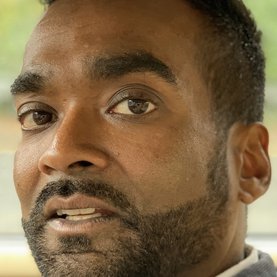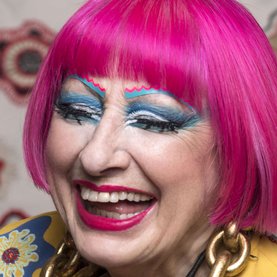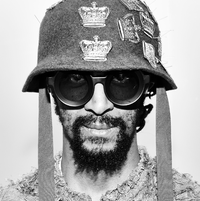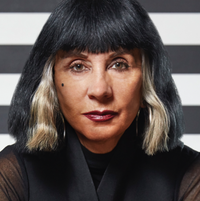Key details
Time
- 4pm – 5:30pm
Location
- Online
Price
- Free
Who could attend
- Prospective students
Type
- Conference or symposium
Part of the Design.Different Season organised by The Helen Hamlyn Centre for Design.
Design.Fashion: One of the hard-to-reach places for inclusive design has traditionally been fashion. The fashion industry has built its reputation on being ‘exclusive’. So how can these worlds meet? When inclusive design threads its way into fashion, it is typically on the fringes, making minor overtures towards older and disabled people.
But fashion is more than ideas that are simply tactile or textile. Fashion can be the first outer expression of yourself, presenting in, on, and even around the body. It is a signal of your self and an expression of you. This session asks how fashion can expand its definition and open its arms to the new futures we see around us that demand inclusivity of all humans. It looks at how fashion and technology can bring its rich history of artistry and innovation to help describe different tomorrows.
Speakers

Angelica Ellis
Multidisciplinary Artist
Angelica Ellis is a multidisciplinary artist who specialises in fashion design and hand embroidery. Ellis graduated from central saint martins in 2021. She often focuses her subject matter on her cultural roots and perceptions of her identity. During placement year at CSM, Ellis had the opportunity to work in Paris where she interned at Chanel metiers d'art: Maison Lemarié. At Lemarié she intensely learned the art of hand embroidery and design. Currently Ellis is doing her masters at Royal college art where she is exploring how to combine the functionality of Adaptive wear with the beauty of artisanal handcrafted techniques.

Ellen Fowles
Adaptivewear Designer
Ellen Fowles is an adaptivewear designer based in London. She makes clothing that supports wearers both during receipt of medical care and in everyday use, providing comfort and destigmatising the experience of being a patient. She practices under a collaborative, human-centred design methodology, achieved through intergenerational co-design and ethnographic research. Ellen offers accessibility by providing wearers with different functional and dressing options, with a considered aesthetic that prioritises wearers' dignity. Her aim is to create garments that people of all ages and abilities can enjoy. She is currently a Research Assistant at Goldsmiths University and an Associate Lecturer at London College of Fashion.

Shanti Bell
Multidisciplinary Artist
Shanti Bell is a multidisciplinary artist with a specialism in Menswear, Carpentry and Furniture Making. After graduating from Central Saint Martins where she studied Fashion: Print, she is now undertaking her masters in Fashion at the Royal College of Art. Over the past years, her practice has expanded and includes exploration and experimentation in the creative fields of sculpture, film, motion and set design. Shanti constantly seeks to push the boundaries of these fields and allows the concept to define the creative medium. Authentic expression is at the heart of the work she is producing with themes being rooted in exploring the burdens of masculinity, father and son relationships and simplifying complexities from that of a female perspective.

Sissel Kärneskog
Humanwear Designer
Sissel Kärneskog is a multidisciplinary humanwear designer and a Royal College of Art alumni as of 2020, currently based in Stockholm, Sweden. Their practice has an Auto-ethnographical core and aims to dispute, disrupt and deconstruct our current binary norms. Their work includes a variety of formats, such as fashion, photo, illustration and film in order to communicate and narrate their point of view. It is a visual argument from one perspective that aims to open up and move forward a discussion in regards to how the view of gender identity needs to evolve, as action makes for change.






